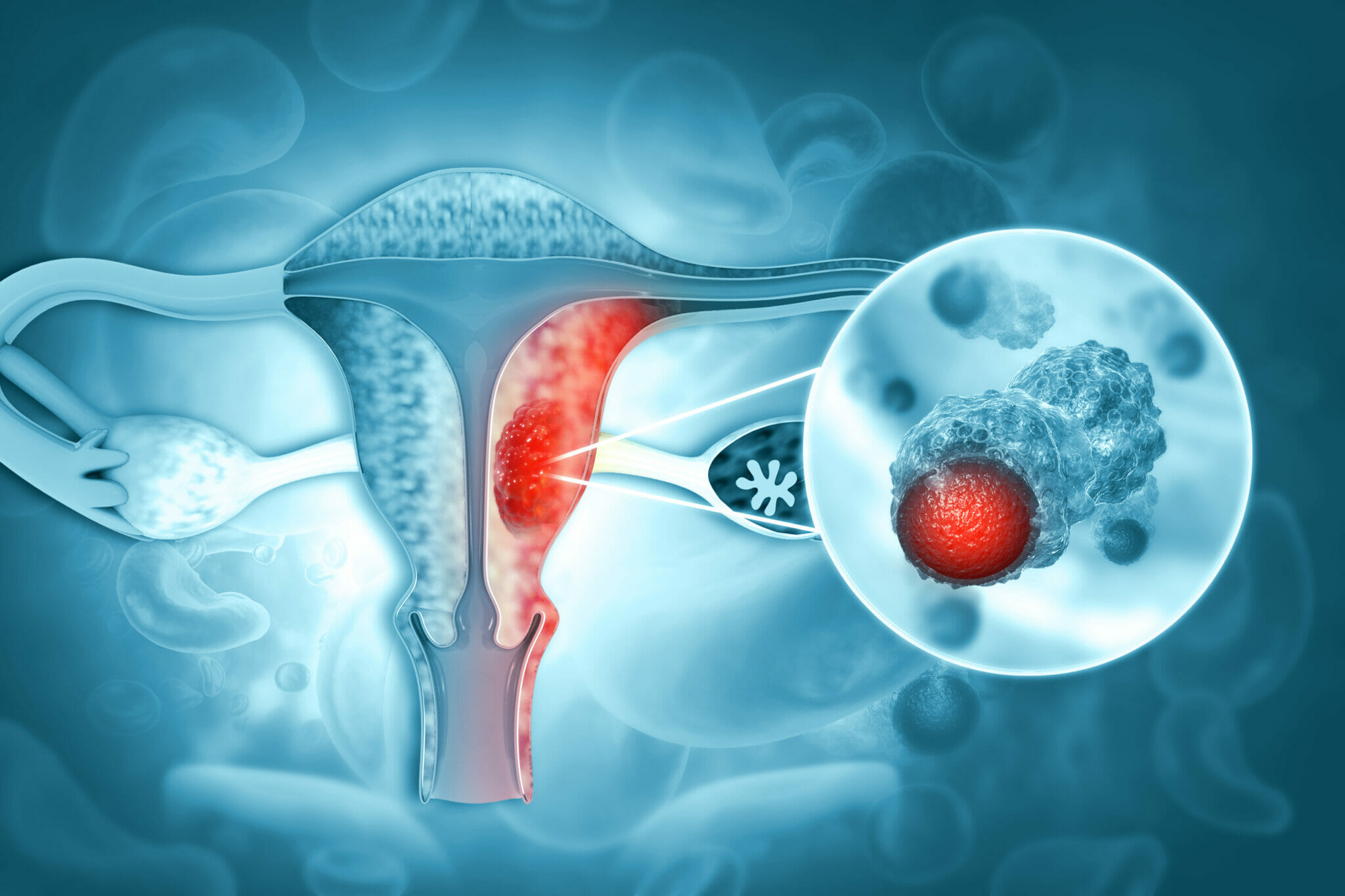Uterine Cancer
What Is Uterine Cancer ?

Treatments Of Uterine Cancer
Depending on the level of advancement and the characteristics of the disease, a combination of surgery with radiation therapy, chemotherapy, and hormone therapy may be deployed. Some patients undergo removal of lymphatic nodes or hysterectomy, among other options, such as targeted therapies made in specific cases.
Early Detection: Early detection is the most significant way to detect the presence of cancer cells within the uterus. It can be done through different pelvic examinations through tests by doctors.
Surgical Intervention: Surgery typically constitutes first-line management for uterine cancers. Depending on the stage and extent of the disease, processes might entail a hysterectomy (removal of the womb) or dissection of lymph nodes affected by malignancy.
Radiation Therapy: Used alongside surgery or to reduce risk after curettage. This form utilizes radiation beams aimed at killing tumor cells.
Chemotherapy: Chemotherapy is generally used in cancer treatments to alter the growth of tumor cells when the Cancer has spread.
Targeted Therapy: Recently, even more drugs, such as targeted therapy and immunotherapies, have been developed, which can help manage or treat the disease by selectively blocking molecular targets responsible for cancer growth in uterine cases.
Spread of Uterine Cancer
Local Spread: The majority of cases start within the walls of the uterus itself. Subsequently, tumor cells can grow into nearby tissues like the cervix or uterus muscle wall.
Lymphatic Spread: Cancer cells can still migrate through the lymphatic c system, a network containing vessels and lymph nodes that help fight infections in the human body. In addition, they may move from the uterus’ lymph nodes into others in the pelvis or abdomen.
Hematogenous Spread: As the disease advances, however, it may reach blood vessels with maligned cells infiltrating far areas like lungs or bones; this type of metastasis is referred to as hematogenous spread, making treatment more difficult.


Warning Signs And Symptoms Of Uterine Cancer
Every year, thousands of women have uterine Cancer. To gain insights into these common factors contributing to uterine Cancer while putting ourselves into the shoes of patients trying to navigate through this issue is very important for both awareness and effective treatment. Here, we discuss some critical issues concerning this ailment:
Warning signs: Abnormal vaginal bleeding, pelvic pain or pressure, urinary or bowel changes, and masses in the pelvis are symptoms that patients with Cancer of the uterus may exhibit. Thus, recognizing these indicators and seeking immediate medical help is crucial in early diagnosis, which leads to better outcomes.
Symptoms: Abnormal vaginal bleeding, pelvic pain or pressure, urinary or bowel changes, and masses in the pelvis are symptoms that patients with Cancer of the uterus may exhibit. Therefore, it is essential to identify these signs and promptly seek medical attention, leading to early identification and, hence, better results.
Understanding Uterine Cancer: Diagnosis and Emotional Impact
Uterine Cancer impacts thousands of women every year—yet many women remain unaware of some factors that contribute to its development and what it’s like for some patients who are suffering from it. We will now delve into some more details about it:
Diagnostic Pathway: Patients who suffer from symptoms go through various diagnostic tests such as pelvic exams, transvaginal ultrasounds, biopsies, and MRIs or CT scans. It could be an intimidating process but a necessary step towards health.
Diagnostic Journey: Several diagnostic tests are conducted to establish whether a patient has uterine Cancer after they start experiencing symptoms, including pelvic exams, transvaginal ultrasounds, biopsies, and imaging scans like MRIs or CT scans. The diagnosis phase may seem scary, but it remains one step in effective treatment plan development.
Emotional Effects: Dealing with a diagnosis of uterine Cancer can be emotionally challenging for both patient and family members. Support networks, counseling, and educational resources can assist individuals navigate the emotional rollercoaster of this illness.
Emotional Impact: Patients and their families may find handling uterine cancer diagnosis quite traumatizing emotionally. Support networks, counseling services, and educational materials can help individuals cope with emotions associated with this killer disease.
